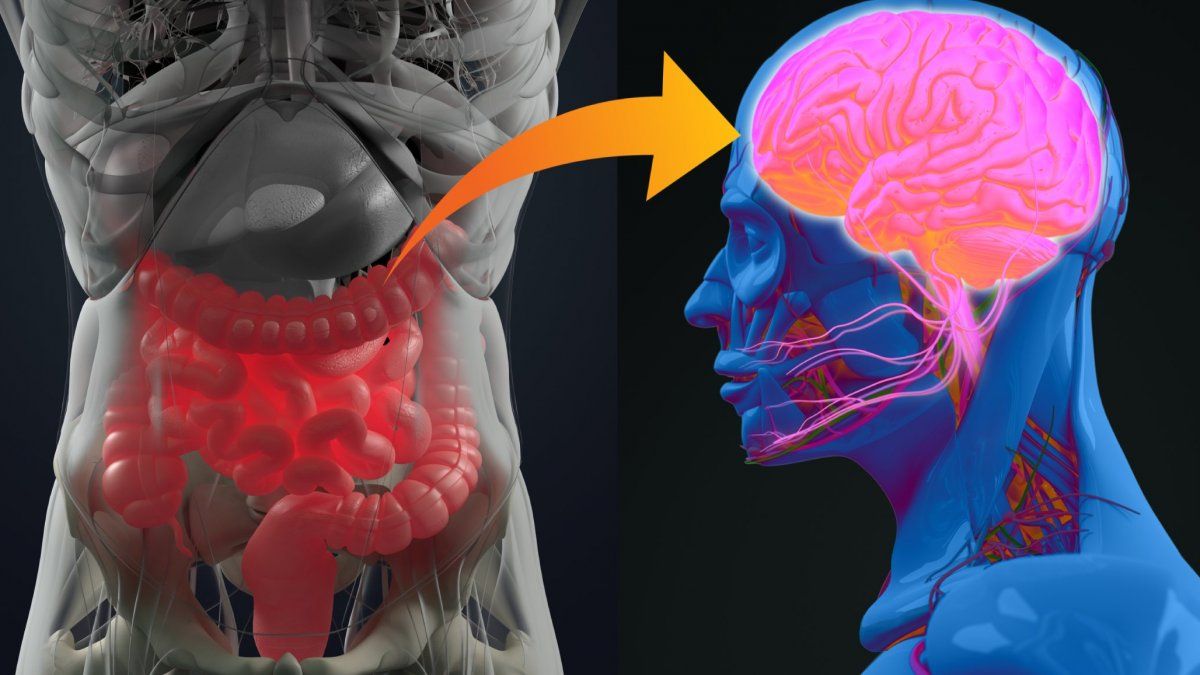It seems that the intestinal microbiota, this set of millions of microorganisms that coexist symbiotically in our intestine, plays a leading role in regulating the response to stress, anxiety and depression.
A simple phrase can express the potential of our intestine: “Tell me what microbiota you have and I will tell you how you behave.”
In order to understand and relate what happens in the intestine with what happens in our brain and vice versa, we have to understand this connection as a bidirectional path. It is increasingly studied, and is being postulated as a possible explanation for some of the most frequent neurological disorders such as Alzheimer’s disease or Parkinson’s disease.
Gut bacteria play a unique role in this relationship. Scientific research and greater knowledge of their interactions will allow us to discover innovative therapeutic strategies and new ways of understanding the functioning of the organism as a WHOLE.
gut-brain-stylejpg.webp
Although there are still many questions to be resolved and we do not know all the mechanisms and consequences of this communication, we are in a position to postulate that a dysbiotic microbiota, that is, an unbalanced or altered microbiota, could be the basis and also the consequence of numerous disorders and neurological disorders and of human behavior such as anxiety, depression and even bad mood. It will be of great impact to know this circuit in depth for future therapeutics.
How do these systems communicate?
Communication between the gut and the brain is thought to occur through different pathways: the vagus nerve, the circulation (via hormones, metabolites, and neurotransmitters), and the immune system.
The vagus nerve takes on a leading role (it is one of the main communicators since it represents the main route for sending information from the microbiota to the central nervous system). In addition to neurotransmitters, hormones and different substances produced by intestinal bacteria, including the well-known short-chain fatty acids.
The serotonin or hormone of happiness, is released in the intestine and directly or indirectly modifies our behavior. Although intestinal bacteria produce 90% of serotonin, it does not reach the brain. The microbiota acts on the levels of its precursors, which do participate in the activation and regulation of serotonin in the brain.
The intestinal microbiota is also involved in the release of a substance called GABA, a fundamental neurotransmitter in the modulation of behavior. This would help improve anxiety control. In turn, the short chain fatty acids As the butyrate are produced in the intestine, regulate GABA levels and also help control appetite.
What strategies can we start with for a “healthy” microbiota and thus positively impact our brain?
- The traditional Mediterranean diet is one of the most studied patterns for its contribution of nutrients to promote the growth of beneficial microorganisms.
- Eating a variety of foods can be associated with favorable changes in the gut microbiome, which in turn benefits the gut-brain axis. There would be a correlation between the variety of foods of plant origin that we consume, the diversity of intestinal bacteria and the feeling of fatigue. The American Gut Project found that the gut microbiome is more diverse in people who eat more than 30 types of plants a week.
- Increase the consumption of plants since they are rich in fiber and anti-inflammatory compounds, as polyphenols, which enter the colon where the microbiota converts them into bioavailable and biologically active compounds. In contrast, Western diets with a high contribution of ultra-processed foods, fats and animal proteins are usually low in these substances.
- The evidence suggests that the consumption of diets rich in polyphenols present in red fruits, red onions, grapes, bitter cocoa and highly colored foods, may be associated with a greater sense of mental energy.
- Avoid excess ultra-processed foods, especially processed meats such as cold cuts, sausages or those full of sugars and refined flours, etc. since they also favor obesity. Overweight people often experience fatigue and decreased stamina.
- Incorporate fermented foods with probiotics.
Bachelor of Nutrition, Certified Health Coach, specialist in Organizational Wellbeing.
Source: Ambito
David William is a talented author who has made a name for himself in the world of writing. He is a professional author who writes on a wide range of topics, from general interest to opinion news. David is currently working as a writer at 24 hours worlds where he brings his unique perspective and in-depth research to his articles, making them both informative and engaging.




